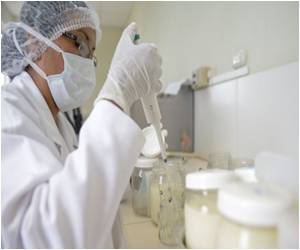In injured mice, the naturally occurring protein fibronectin is instrumental in stopping bleeding but interestingly also at preventing life-threatening blood clots.

Researchers found that fibronectin can actually switch its function from stopping bleeding to stopping overactive blood clots.
"Most treatments that help the body stop bleeding can actually cause blood clots and many treatments to prevent excessive blood clots increase risk of bleeding out," said Dr. Heyu Ni, the principal investigator and a scientist in the Keenan Research Centre for Biomedical Science of St. Michael's Hospital. "But when given to mice after an injury or to mice treated with blood thinners – which frequently lead to bleeding complications – fibronectin seems to offer a win-win solution."
More clinical studies are required to determine whether fibronectin – one of many proteins found in blood – plays a similar role in people. Dr. Ni's research shows that fibronectin may actually be the body's first response to prevent bleeding at an injured blood vessel.
This discovery highlights a possible new research direction for bleeding control and may be most relevant for surgery and traumatic injuries, which often require a large amount of blood transfusions.
"Blood transfusions carry risk of heart attack and stroke, especially in surgical patients, so researchers and clinicians around the world are experimenting with different forms of blood product to determine which is best for transfusions," said Dr. Ni, who is also a scientist with Canadian Blood Services.
Advertisement
"Fibrinogen has been shown to help the body stop bleeding, but our research indicates that less-refined blood products that include fibronectin and fibrinogen may help stop bleeding even more effectively," said Dr. Ni. "And, as an added bonus, fibronectin likely also reduces the risk of life-threatening blood clots from forming."
Advertisement
"There is a lot of work to be done but we might find that the less expensive and less processed form of donor blood may be more effective for transfusions," said Dr. Ni. "We've shown that fibronectin might play a role in improving results from transfusions and should not be discarded during blood product processing. It may be also an important protein in transfusions for stopping bleeding, particularly for patients who receive blood thinners during surgeries."
Source-Eurekalert










